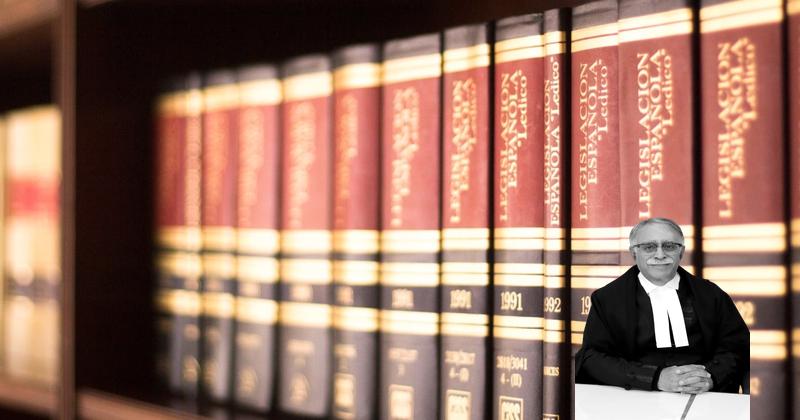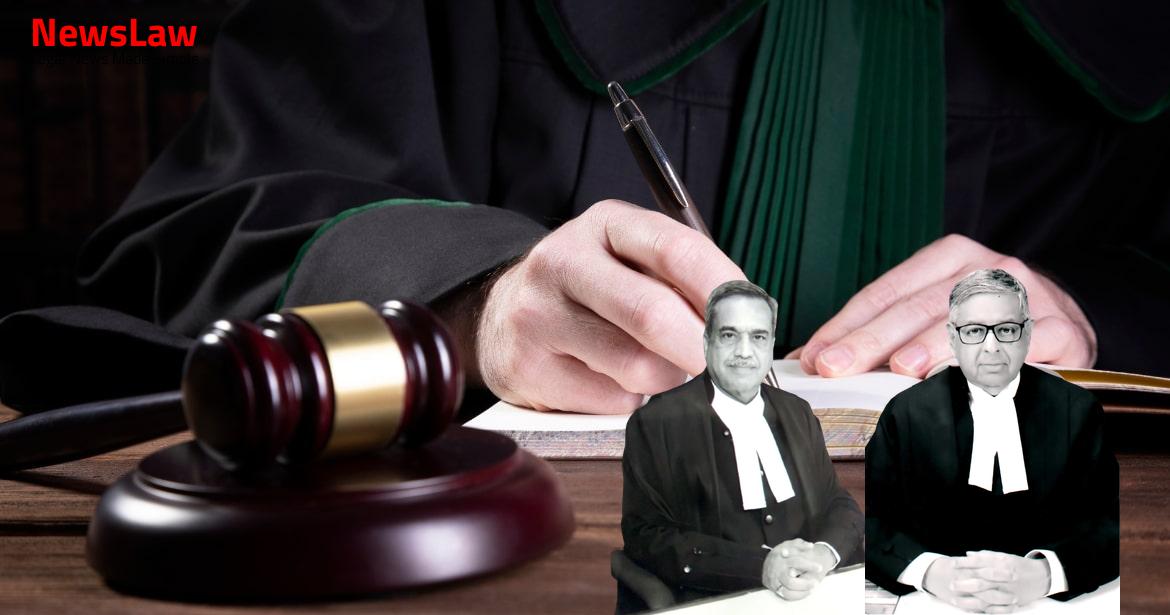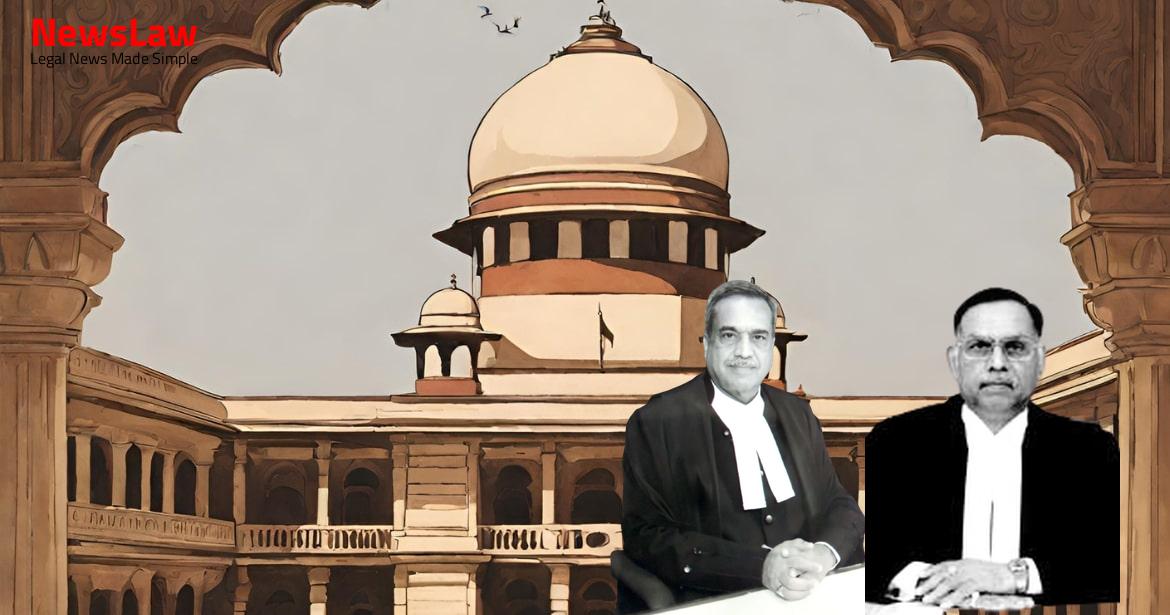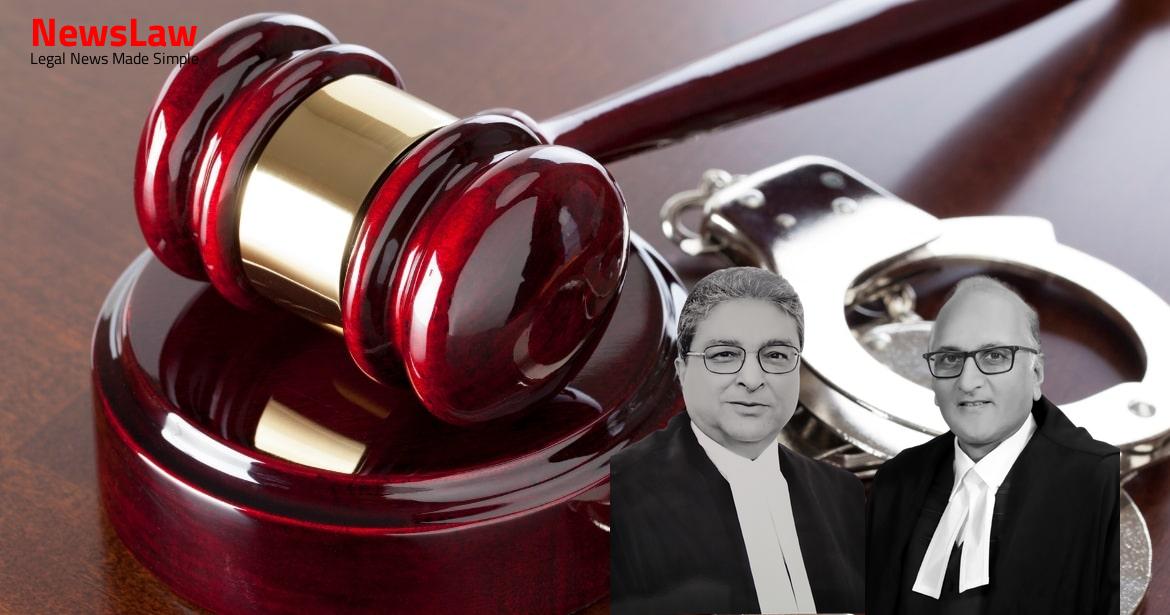24507 of 2010 (AA) under Section 37(1) of the Arbitration and Conciliation Act, 1996, is whether the High Court was justified in confirming the order dated 22 April, 2010 under Section 34 of the Arbitration & Conciliation Act, 1996 passed by the Senior Civil Judge, Sirsi, in Civil Misc. 3
Also Read: https://newslaw.in/supreme-court/legal-analysis-of-appeal-against-order-of-commissioner-of-payments/
It is undisputed that the work as allotted could not be completed by the Claimant-Appellant, for which, he held the authorities of the State responsible as they allegedly did not clear his bills, repeatedly at every stage and also due to delays caused by change of site and in delivery of material for such construction. Having heard both sides, the three primary issues identified were:- (a) inordinate delay in handing over of site for performance of contract; (b) non-supply of working drawings and designs; and (c) delay in supply of materials. 3) Drawing showing the details of 1 floor slab of the office of the Conservator of Forest was found to be prepared by 13.10.1992 but supplied on 01.11.1992 i.e. 4) The drawings with details of lintel beams, roof beams, slab, etc of quarters was prepared by 05.10.1991 & supplied on 15.10.1991 but the changed site for construction was handed over to claimant on 14.02.1991. Rs.15,800/- Rs.15,800/- 7 Payment on revised rates on the work executed beyond the originally stipulated time Rs.11,33,000/- Rs.9,67,300/- 8 Payment on refund of freek rates recovered in work bills Rs.33,469/- Rs.33,469/- 9 Payment on refund of security deposit Rs.57,770/- Rs.57,770/- 10 Payment of interest, pre arbitration, pendente lite and @18% p.a. on all amounts due from 09.3.94 till the date of payment 11 Cost of Arbitration Rs.1,00,000/- Rs.50,000/- PROCEEDINGS UNDER SECTION 34 OF THE A&C ACT 7. Therefore, the question of loss of payment to the labourers and materials collected for construction, does not arise and the losses allegedly suffered by the Claimant-Appellant were “only at his imagination”. The Claimant- Appellant has not explained that despite such handing over of possession by August 1990, no excavation work for the foundation had commenced. The High Court has held that the view of the Arbitrator that the Department is solely responsible for the breach of the contract, cannot be accepted as the shift in venue was only in respect of the residential quarters and not for the office complex. “It would be a case of misconduct on the part of the arbitrator amenable to Section 34 of the Act” 9.4 Claim No 3 in respect of idle labour being allowed to the tune of Rs.1,77,300/- “shocks the conscience of the court.” It is so because there was no basis for the labour to be idle.
The learned Civil Judge, Sirsi, to restate, modified the award passed by the learned Arbitrator reducing the amount awarded as also interest thereupon, i.e., Rs.14,68,239/- @ 18% to only 25% of the tender amount which equals to Rs.3,71,564/- and the interest percentage thereon was reduced to 9%. Hakeen and Another, categorically held that any court under Section 34 would have no jurisdiction to modify the arbitral award, which at best, given the same to be in conflict with the grounds specified under Section 34 would be wholly unsustainable in law. In McDermott International Inc.
In McDermott International Inc. [ McDermott International Inc.
It is a settled principle of law that arbitral proceedings are per se not comparable to judicial proceedings before the Court ( Dyna Technologies Private Limited v. We are dealing with an award passed on 18 February, 2003, prior to the amendment brought in Section 34 by virtue of the Arbitration and Conciliation (Amendment) Act, 2015. (v) the composition of the Arbitral Tribunal or the arbitral procedure was not in accordance with the agreement of the parties, unless such agreement was in conflict with a provision of this Part from which the parties cannot derogate, or, failing such agreement, was not in accordance with this Part; or (b) the court finds that— (i) the subject-matter of the dispute is not capable of settlement by arbitration under the law for the time being in force, or (ii) the arbitral award is in conflict with the public policy of India. [ Explanation 1.—For the avoidance of any doubt, it is clarified that an award is in conflict with the public policy of India, only if,— ( i ) the making of the award was induced or affected by fraud or corruption or was in violation of Section 75 or Section 81; or ( ii ) it is in contravention with the fundamental policy of Indian law; or ( iii ) it is in conflict with the most basic notions of morality or justice.
the avoidance of doubt, the test as to whether there is a contravention with the fundamental policy of Indian law shall not entail a review on the merits of the dispute.] [(2-A) An arbitral award arising out of arbitrations other than international commercial arbitrations, may also be set aside by the court, if the court finds that the award is vitiated by patent illegality appearing on the face of the award: Provided that an award shall not be set aside merely on the ground of an erroneous application of the law or by reappreciation of evidence. It will be seen that none of the grounds contained in sub- section (2)( a ) of Section 34 deal with the merits of the decision rendered by an arbitral award. When it came to construing the expression “the public policy of India” contained in Section 34(2)( b )( ii ) of the Arbitration Act, 1996, this Court in ONGC Ltd.
What is for public good or in public interest or what would be injurious or harmful to the public good or public interest has varied from time to time. The result would be—award could be set aside if it is contrary to: ( a ) fundamental policy of Indian law; or ( b ) the interest of India; or ( c ) justice or morality, or ( d ) in addition, if it is patently illegal. In short, what is not subsumed within “the fundamental policy of Indian law”, namely, the contravention of a statute not linked to public policy or public interest, cannot be brought in by the backdoor when it comes to setting aside an award on the ground of patent illegality.” 27. When an award is contrary to the interest of India, or against justice or morality, in the sense that it shocks the conscience of the Court.” JUDGMENT PASSED UNDER SECTION 34 A&C ACT 28.
Also Read: https://newslaw.in/supreme-court/promotion-policy-for-rank-of-avm-in-indian-air-force/
We have carefully perused the award passed by the Arbitrator in which he has not only referred to and considered the materials on record in their entirety but also, after due application of mind, assigned reasons for arriving at this conclusion, either rejecting, accepting or reducing the claim set out by the Claimant-Appellant. 1
In awarding an amount of 25% of the tender amount (incorrectly recorded as “over the tender amount” in some parts of the judgment of the learned Civil Judge, Sirsi) in favour of the Claimant-Appellant, the Court has ipso facto accepted that the Claimant-Appellant had not breached the terms of the contract. “…Whether the claimant is claiming the such amount is from the pocket of concerned Engineers or from his property, whey should so much amount be paid from exchequer amount, it is heavily cast on the tax payer, that has to be consider by the court…” 32.2
Further observations as we extract hereunder, justifying the interference in the award, in our considered opinion, are totally scandalous: – “…Admittedly the arbitrator who is retired Engineer after retirement there will be no holding on the department, when the claimant is going to benefit so much amount there will be benefit to the arbitrator…” 32.3 The Court imputed its personal knowledge in assigning reasons by observing :- “…Even in this case also if the report of the arbitrator is accepted as it is, it is heavy burden on the exchequer not on the department…” 32.4 The reasoning given by the Court in interfering with the award which is extracted immediately hereafter, in our view, is preposterous: – “…It is the common sense and the general observation, whenever the work is entrusted to any contractor to put up the construction what they do is, they use to start excavation to lay a foundation.
So, under such circumstances the alleged loss pleaded by the opponent No.2 is only at his imagination.” 5 For it is no business of the Court to consider the burden on the exchequer. 7 The other observation that there was a delay on the part of the contractor in completing the work or speeding up the work does not reflect in the record. Moving further, we now consider the judgment impugned before us, i.e., the order of the High Court upholding such modification, under the jurisdiction of Section 37 of the A&C Act. As far as interference with an order made under Section 34, as per Section 37, is concerned, it cannot be disputed that such interference under Section 37 cannot travel beyond the restrictions laid down under Section 34. Thus, it is evident that in case an arbitral award has been confirmed by the court under Section 34 and by the court in an appeal under Section 37, this Court must be extremely cautious and slow to disturb such concurrent findings.” (Emphasis Supplied) 36.
Also Read: https://newslaw.in/supreme-court/differences-between-parties-and-witnesses-in-a-civil-suit/
This Court has not lost sight of the fact that, as a consequence to our discussion as aforesaid, holding that the judgment and order under Section 34 of the A&C Act does not stand judicial scrutiny, an independent evaluation of the impugned judgment may not be required in view of the holding referred to supra in MMTC Ltd. Well, this cannot be a reason to modify the award for the parties are governed by the terms and conditions and the price escalation stood justified by the petitioner based on cogent and reliable material as was so counted by the Arbitrator in partly accepting and/or rejecting the claims.
The learned single Judge has examined the reasoning adopted by the learned Arbitrator in respect of certain claims (claims 3 and 7, particularly) and held that allowing a claim for escalation of cost, was without satisfactory material having been placed on record and is “perverse and contrary to the public policy”.
Case Title: S.V. SAMUDRAM Vs. THE STATE OF KARNATAKA (2024 INSC 17)
Case Number: C.A. No.-008067-008067 / 2019



